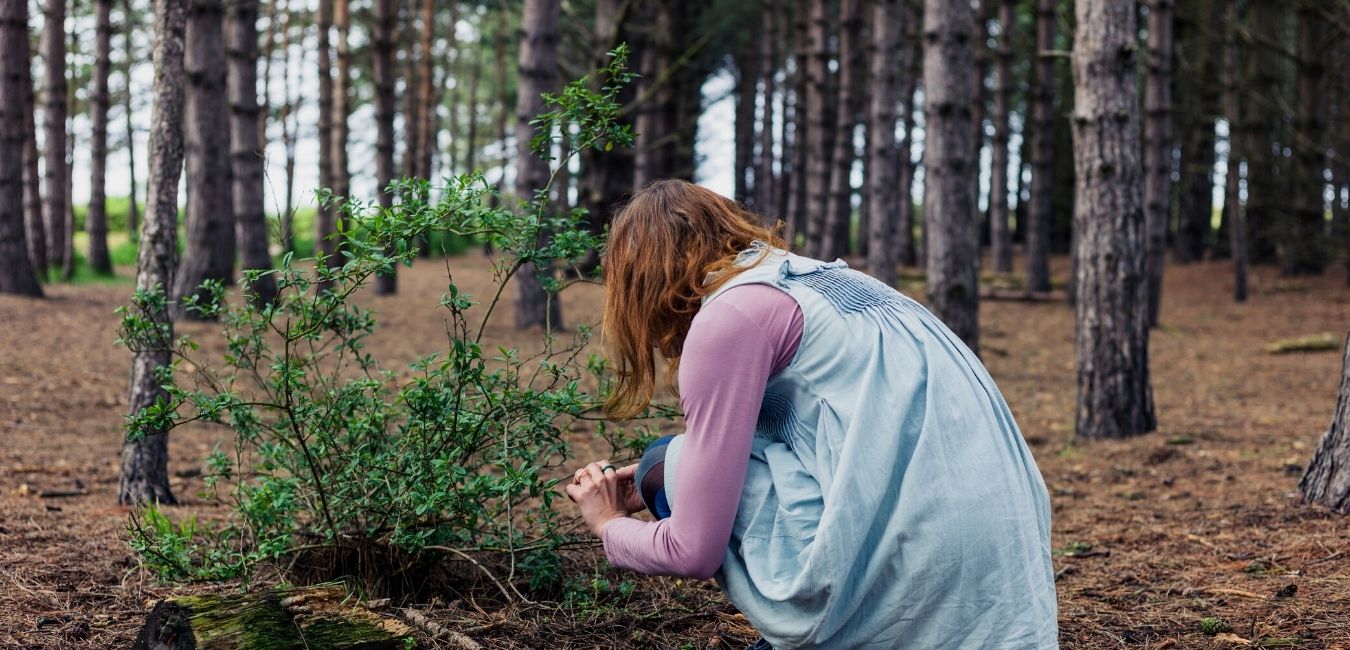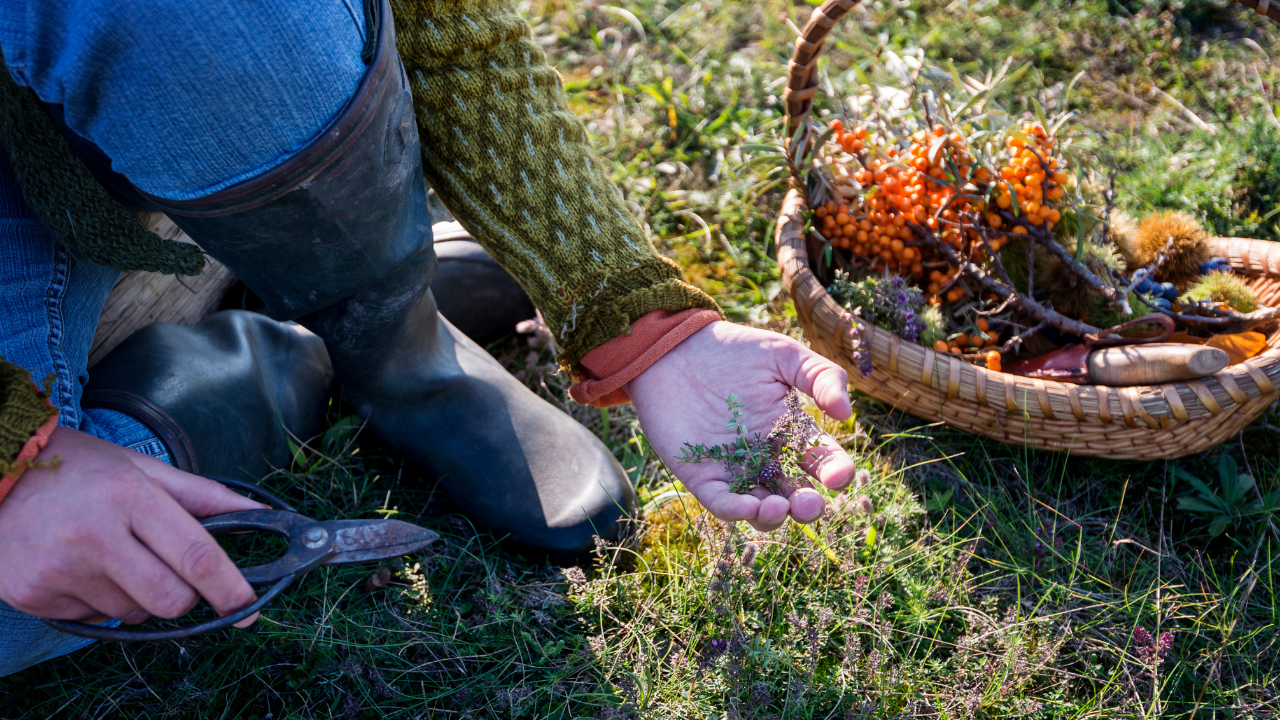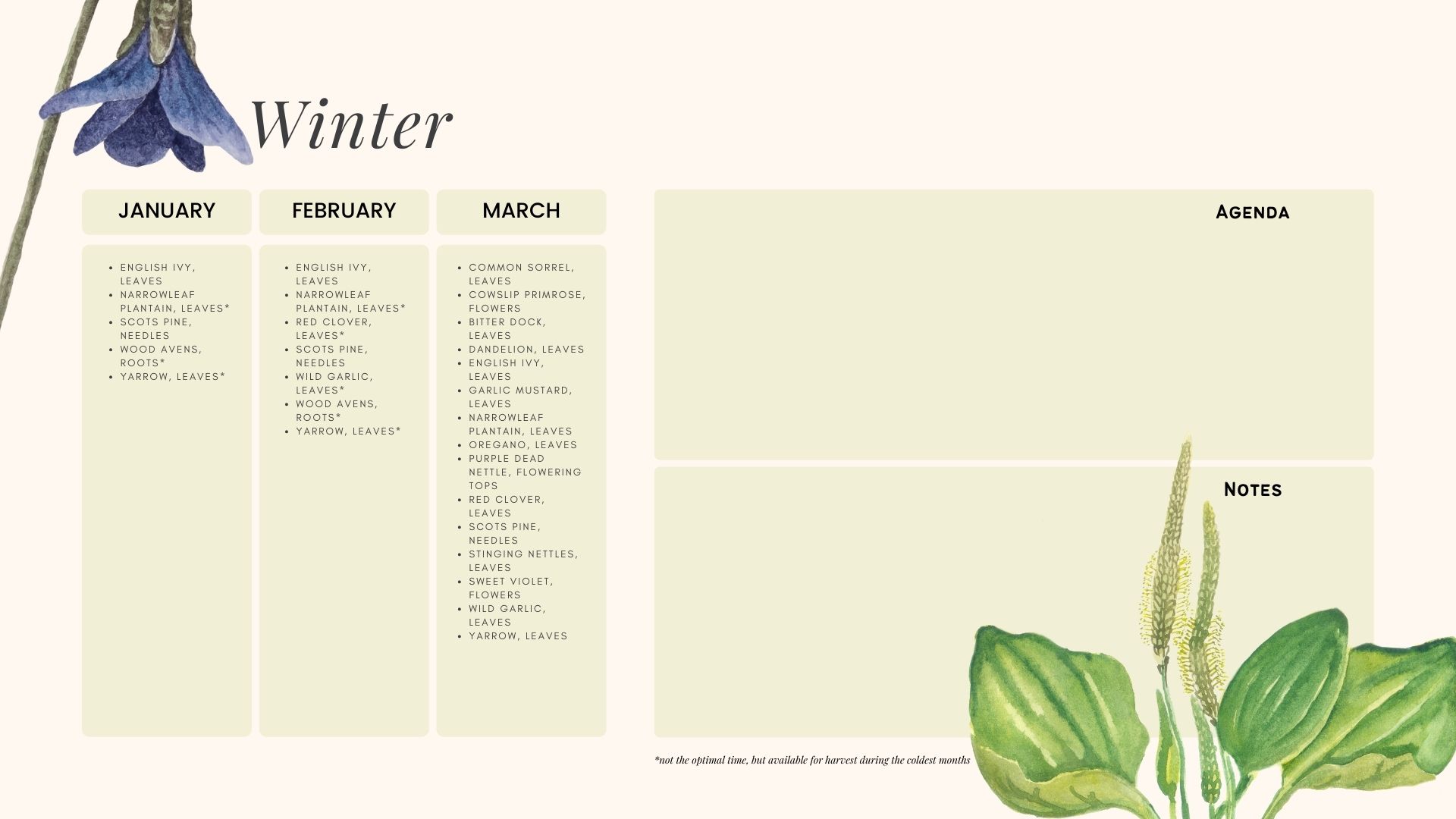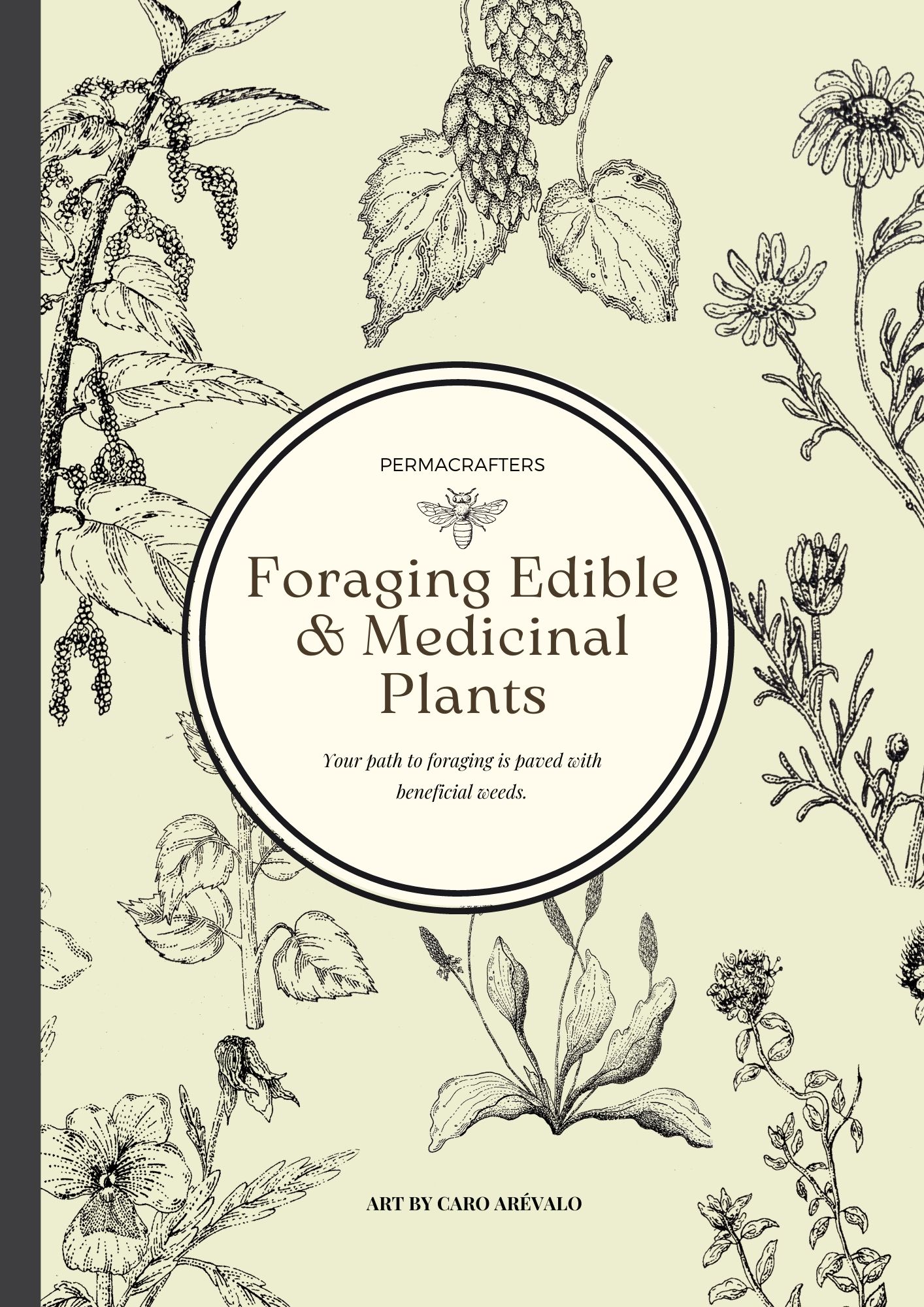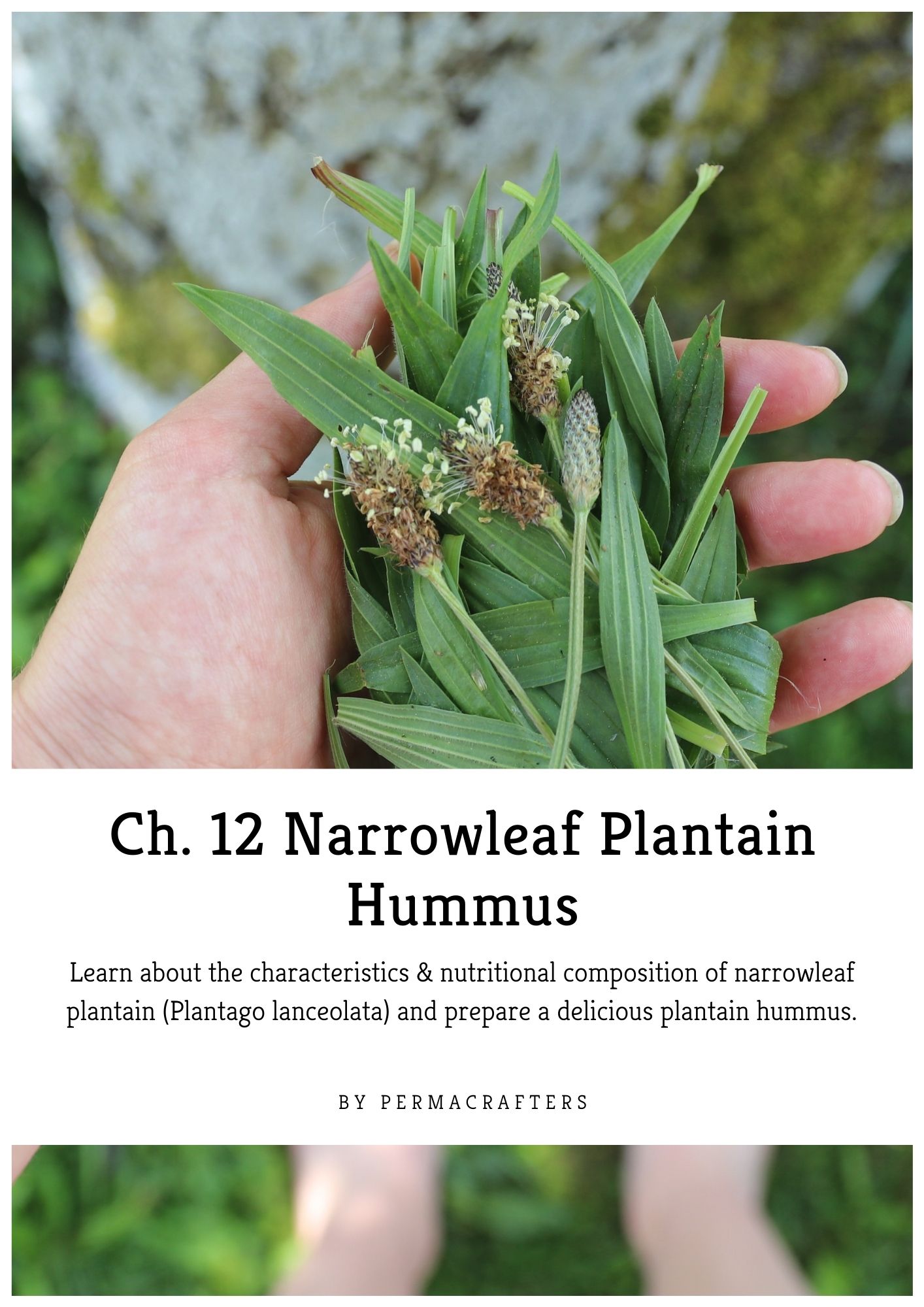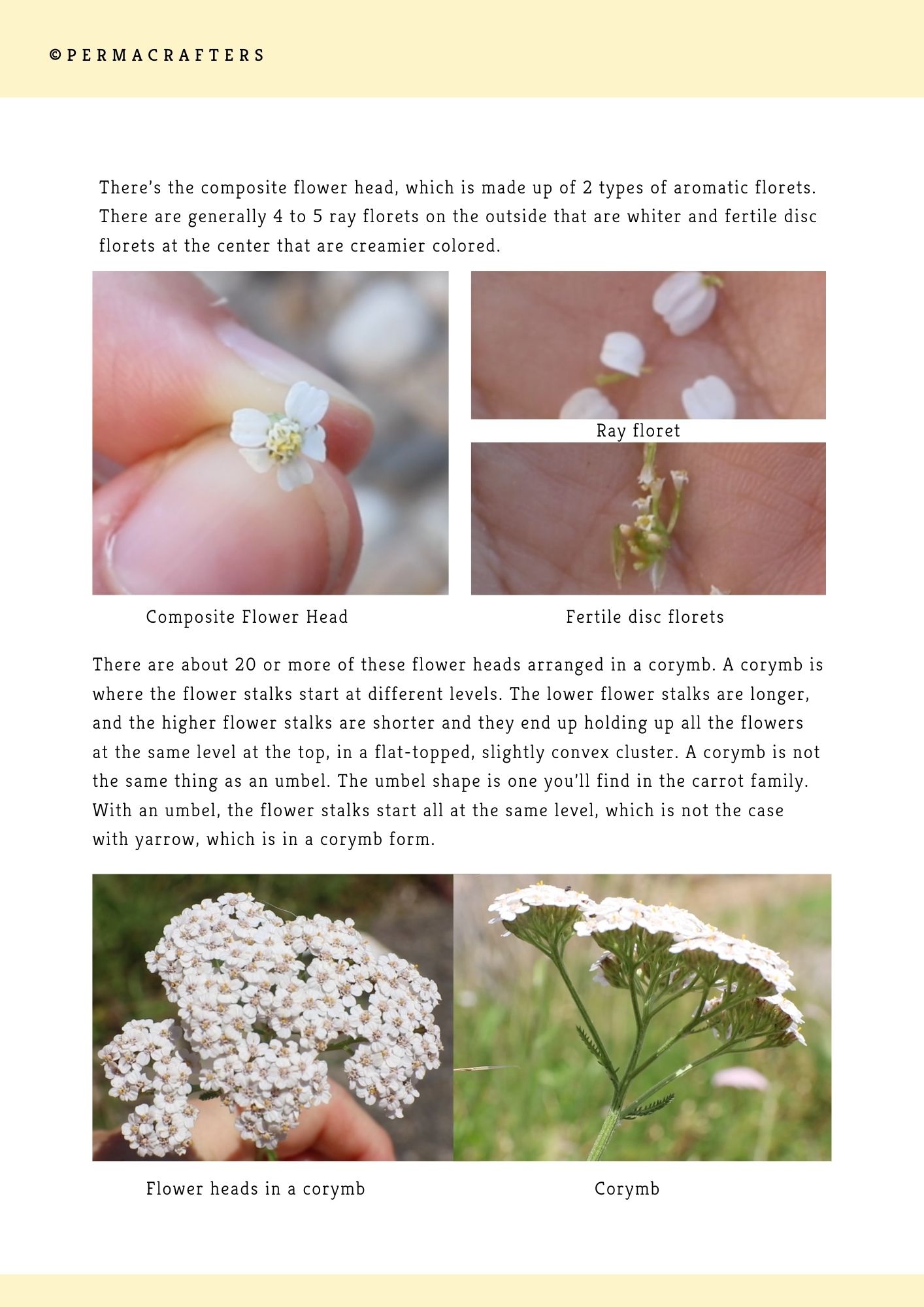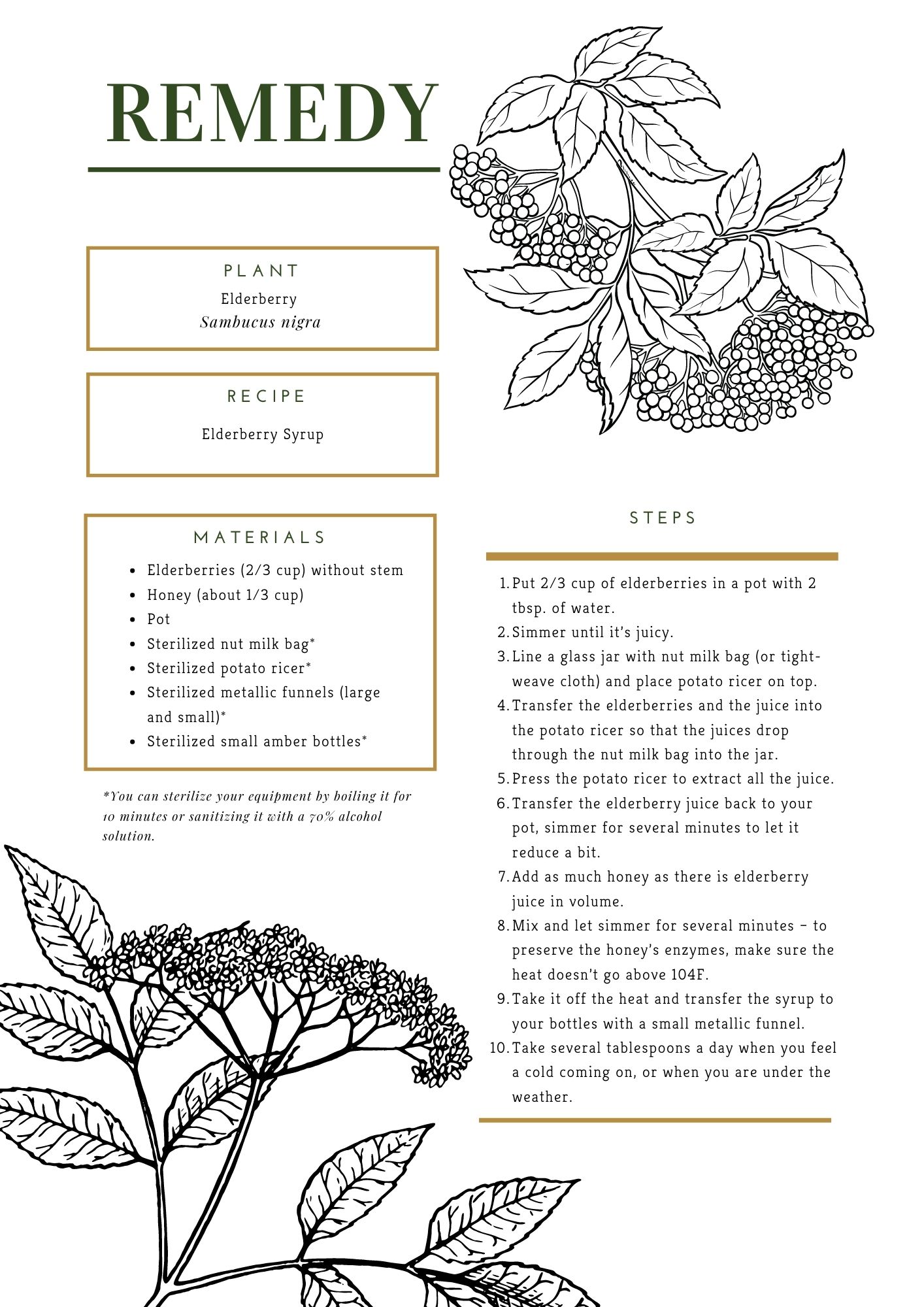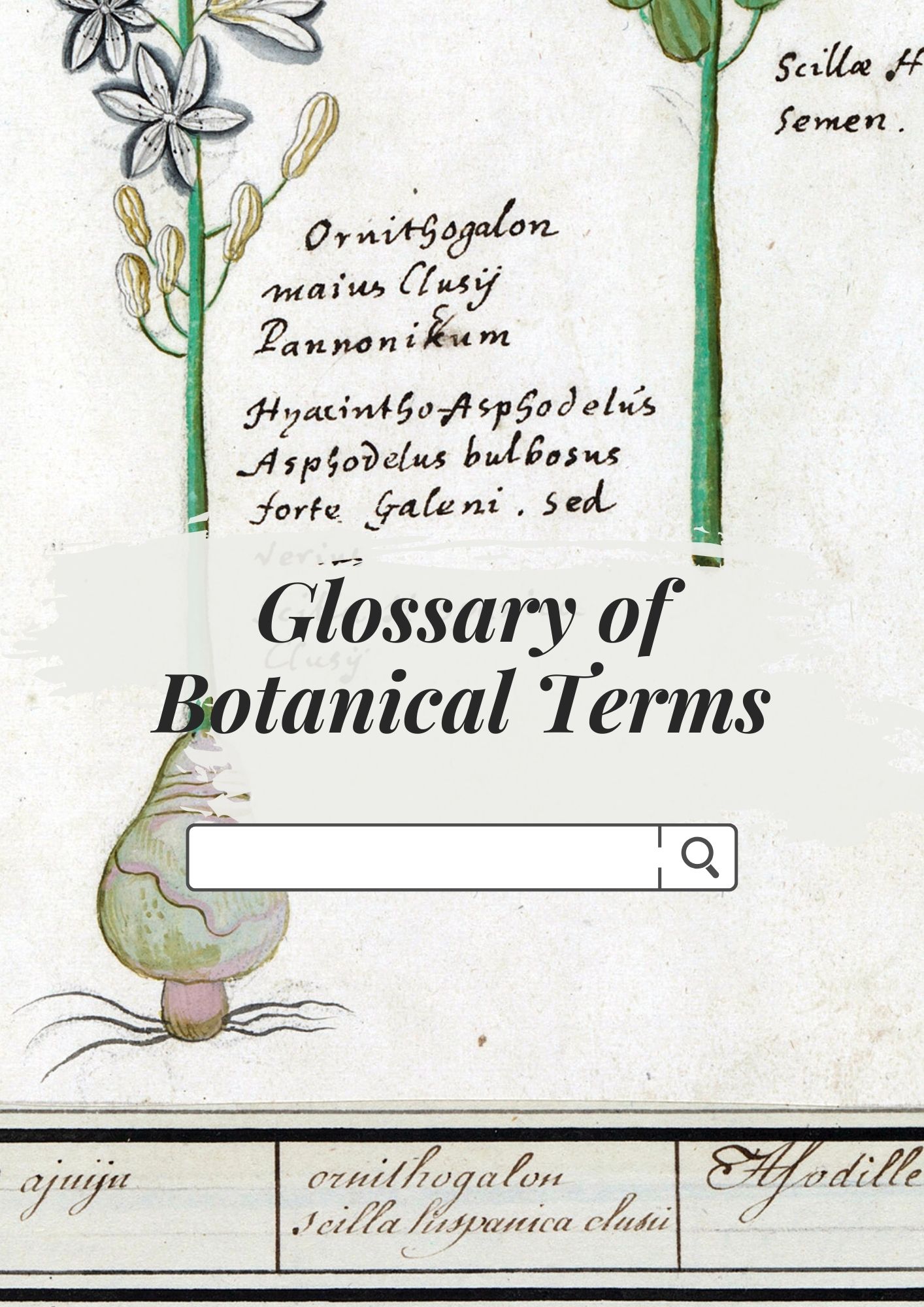GREEN FRIDAY SALE: 70% OFF THE FORAGING COURSE with code “GREENFRIDAY”
Foraging Edible & Medicinal Plants
Your path to foraging is paved with beneficial weeds.

Foraging Edible & Medicinal Plants
Your path to foraging is paved with beneficial weeds.

As featured in:

Tasting a wild plant for the first time should make you feel like a badass botany babe, not like you should call the poison hotline.
But it’s not easy:
Trying to tell apart dozens of plants. “Everything just looks green to me!!”
Reliving your high school nightmare: “There’s no way I can memorize these Latin names!”
Grazing your bare arm against a questionable plant. “Is this how I die?”
You know what you want:
Answers
Does this delicious plant have an evil twin? You want clear concise answers without paging through piles of books or combing online forums for clues.
Support
You want to identify plants beyond doubt with the support system to move past hesitation.
Confidence
You want to strut into your bestie’s backyard cookout, wind in your hair, with wild herb focaccia bread in one hand and plantain hummus in the other.
Welcome to the Foraging Course!
In the Foraging Course, we’re too busy learning plant identification skills to have time to worry about anyone mispronouncing plant family names like Lamiaceae. This is a judgement-free place to get real answers about how to distinguish plants from their lookalikes beyond doubt, how to safely consume them, and what their medicinal properties are. You start with easy plants with few lookalikes, and work your way up.
“Super ultra grateful for the wise women at Permacrafters for infusing so much love into this fantastic resource. And yes, I’m also here for the humor.” – Allison K., student
You’ve been yearning to reconnect to your roots (literally). You want to feel that child-like wonder again when you find a lucky 4-leaf clover and realize it’s also a tasty trail snack. You want to low-key feel like Wonder Woman when you pluck plants right at your feet to stop another hiker’s bleeding wound.
Honey, it’s time to find out what weeds are gonna be cooked up for dinner!
MEET GILLY
Gardening Coach
Gilly has found her village; a place to be inspired. She enrolled as a commitment to herself and to her son to care for the Earth. Taking action has been so much easier for her, because 100% of the time her questions are answered. Check out her interview now.
MEET CARO
Visual Artist
Caro has been on a sustainability journey in her personal life and in her art business. She paints breathtaking illustrations of the wild plants and mushrooms that she forages. Since enrolling, she has been enjoying the course recipes and even designed our eBook cover. Watch her video here.
The Foraging Course is here to guide you every step of your way.
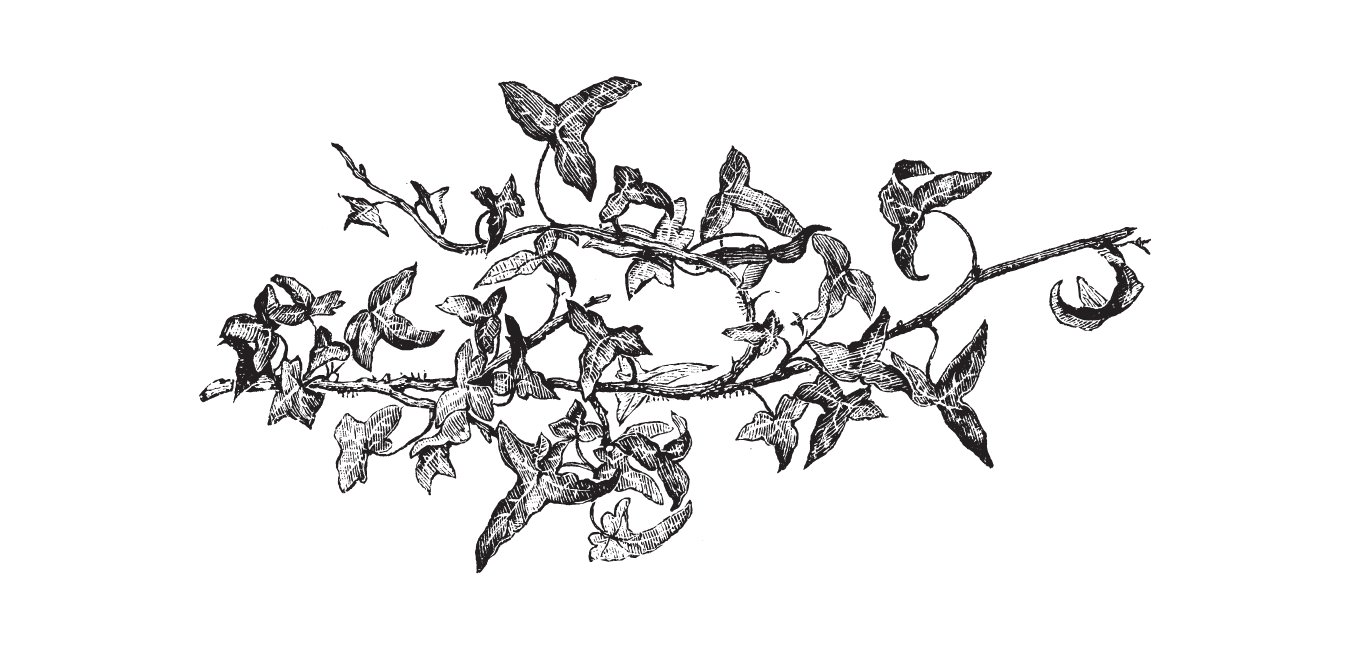
Foraging Course Curriculum
When you give yourself the gift of foraging independence by signing up for the Foraging Course, you’ll get lifetime access to this training:
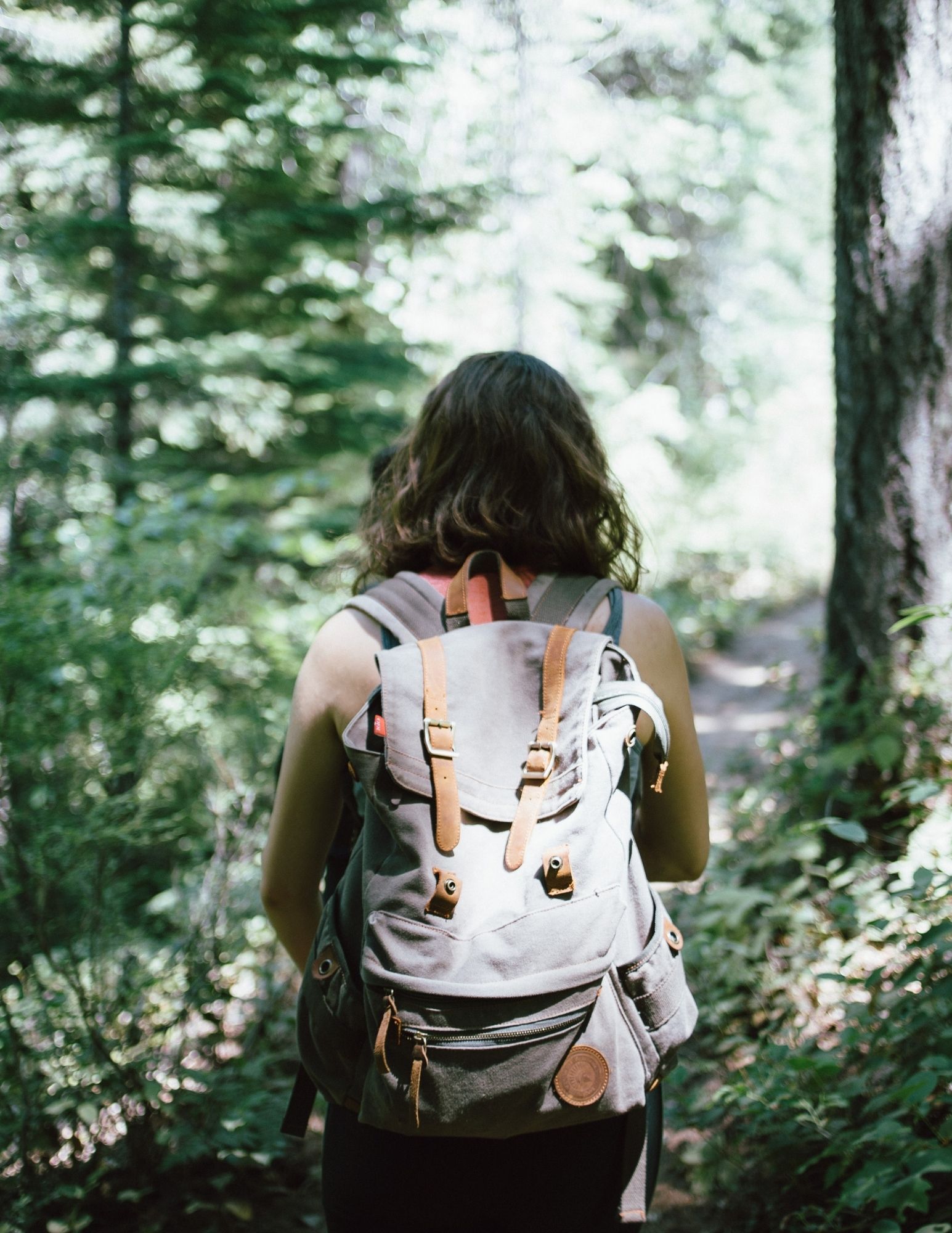
Module 1: The Rules of Foraging
10 Rules of Safe Foraging • 6 Rules of Ethical Harvesting • Toxic Plants
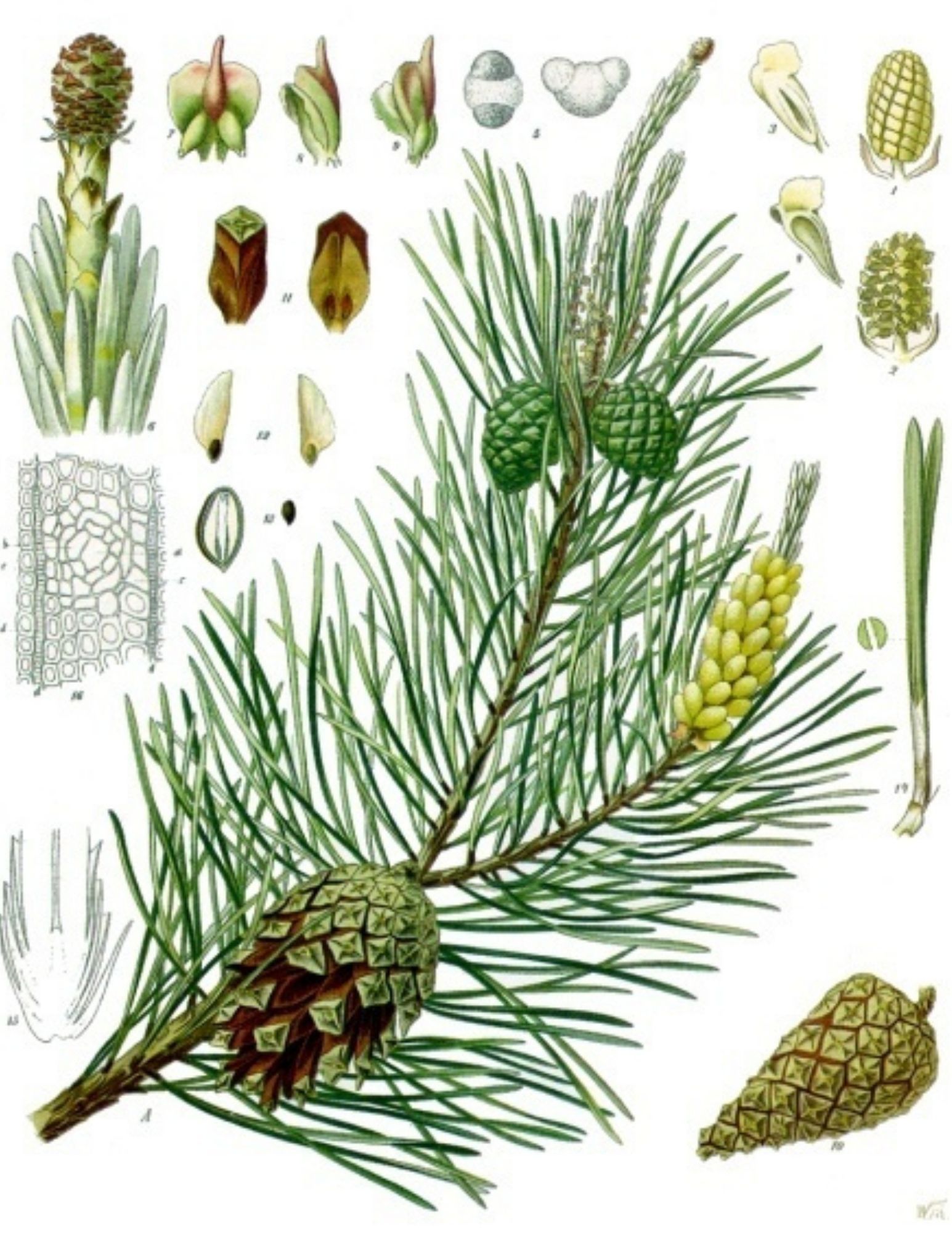
Module 2: Botany Basics
Leaf Morphology • Botanical Terms • Life Cycles
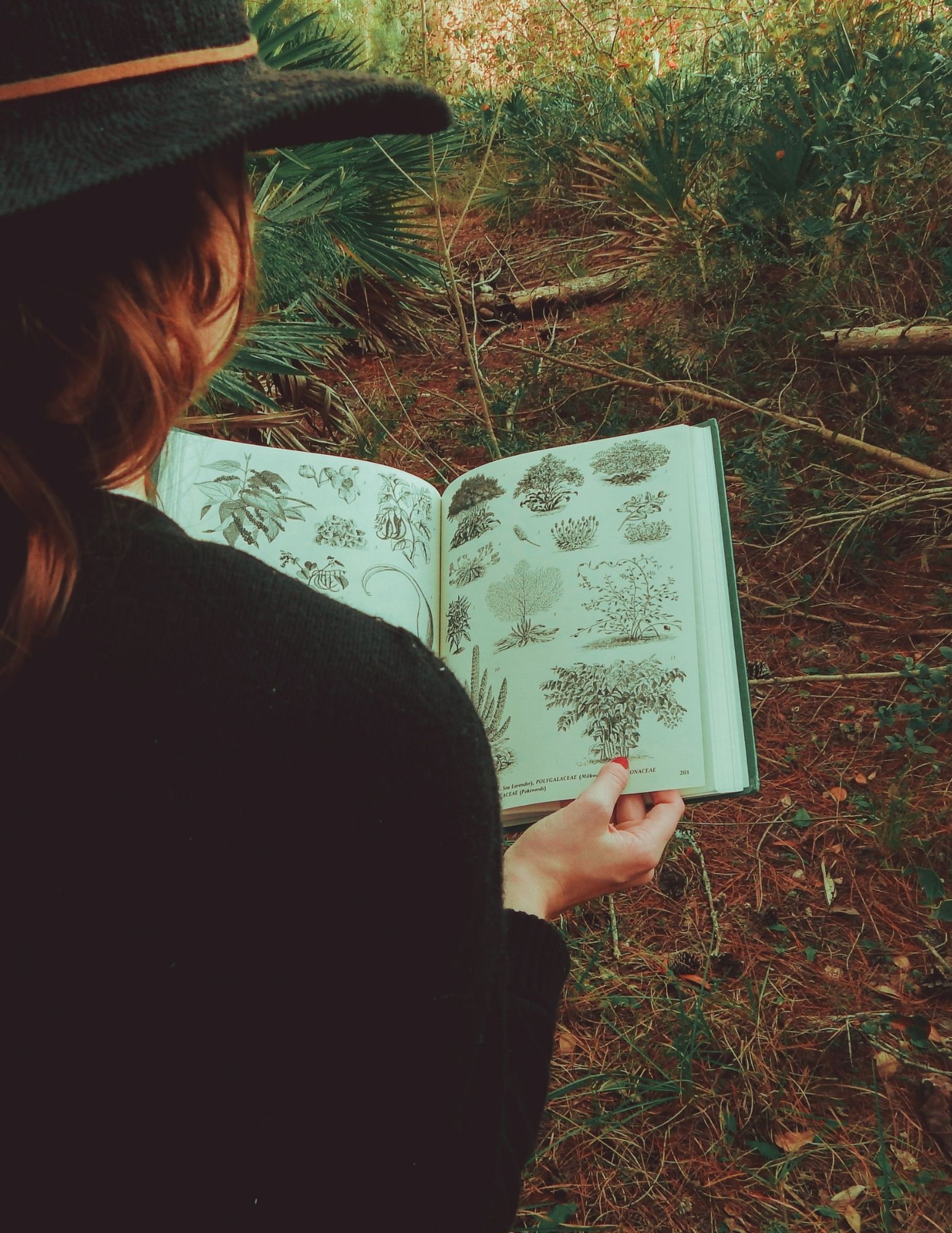
Module 3: Plant Chemistry Basics
Medicinal Properties of Active Molecules • Secondary Metabolites • Alkaloids • Terpenes • Phenolic Compounds
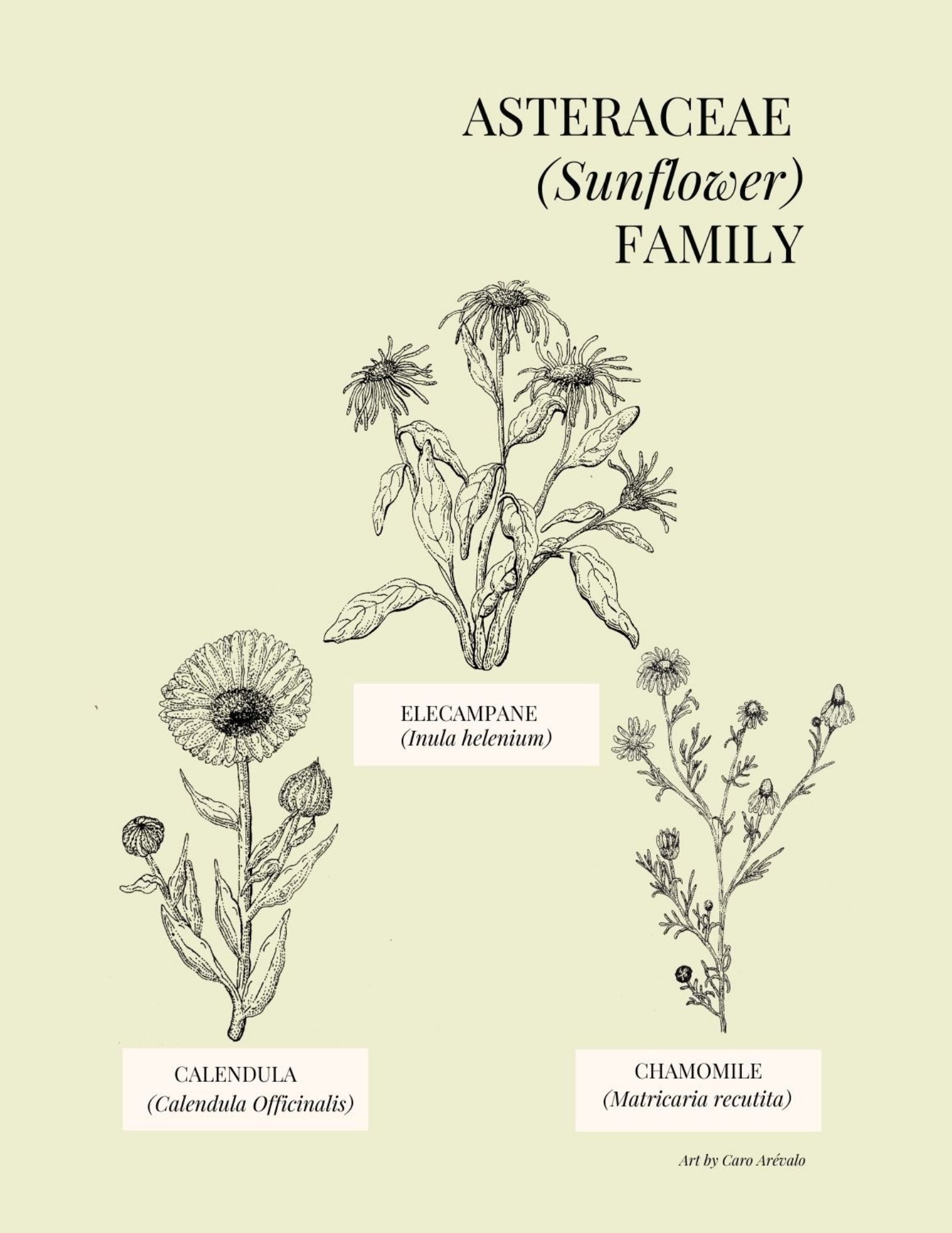
Module 4: Plant Families
Lamiaceae (Mint) Family • Rosaceae (Rose) Family • Asteraceae (Sunflower) Family

Module 5: Foraging Plants for Medicinal Purposes
Plants to Forage for Anxiety & Stress • Wild Medicinal Plants for Respiratory Infections

Module 6: Identifying Wild Plants
Blackberry • Wild Oregano • English Walnut • Lamb’s Quarters • Black Horehound • St. John’s Wort • Self Heal • Acorns • Sweet Chestnut • Common Poppy • Common Mallow • Greater Burdock • Bitter Dock • Common Sorrel • Amaranth

Module 7: Edible Plant Profiles with Recipe Tutorials
Wild Garlic Pesto • Narrowleaf Plantain Hummus • Red Clover Tabbouleh • Elderflower Fritters • Dandelion Salad & Greens • Garlic Mustard Lentil Spread • Sweet Violet Vinegar • Loblolly Pine Dressing • Wood Avens Spice Latte • Purple Dead Nettle Tofu Scramble • Hickory Nut Milk • Pickled Grape Leaves
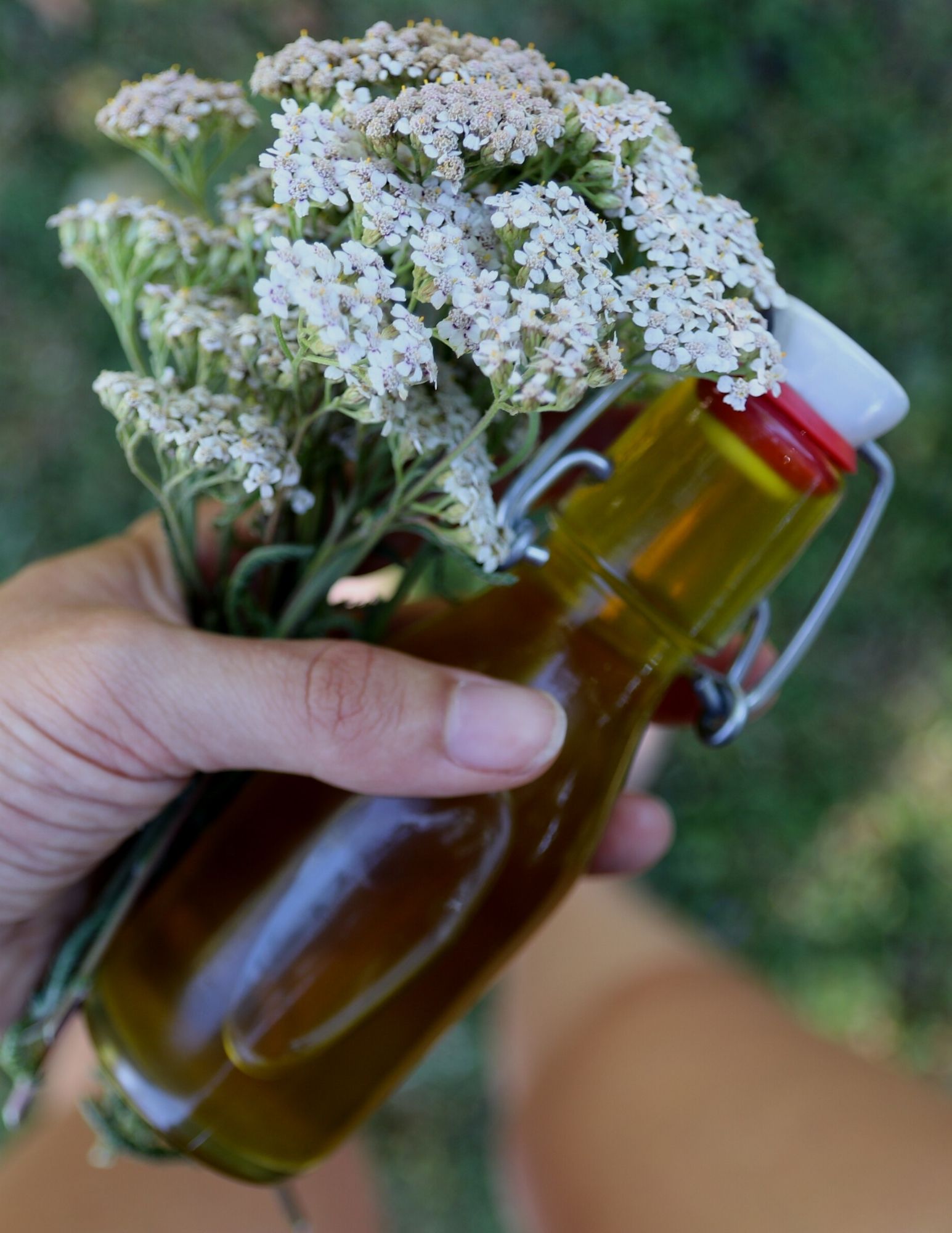
Module 8: Medicinal Plant Profiles with Remedy Tutorials
Cowslip Primrose Tea • Yarrow Oil for Varicose Veins • Elderberry Syrup

Module 9: Wild Plants & Craft Tutorials
Stinging Nettles Bar Shampoo • English Ivy Detergent • Horse Chestnut Detergent • Wood Ash Laundry Cleaner • Autumn Wall Hanging • Pine Cleaning Spray
The Foraging Course enrollment also includes:
Quizzes
Each module ends in a quiz to ensure you grasp the key takeaways. Think of it as mini CliffNotes study guides, but for botany.
Certificate of Completion
Once you’ve finished the course and correctly answered all the quizzes, you will earn your 100-hour certificate of completion. Take a breath: there is no deadline by which to submit your work.
Seasonal Foraging Calendars
Choose your favorite planner and print it or set it as your screen wallpaper. Glance at it any time of year and know exactly what wild plants are in season.
EBook
Swipe right on seductive plant profiles tonight. Our course comes with a gorgeously designed ebook full of 25+ plant profiles, recipe sheets, and the what’s-what of medicinal plants. Over 400 pages of step-by-step guidance to get you foraging with dreamy illustrations by the distinguished artist Caro Arévalo.
You’ll also be invited to:
Our Student Forum
One of the best perks of the Foraging Course is being able to have a platform to celebrate your harvesting & recipe successes with other wild plant lovers. The forum is also a place to ask questions and get support from our team, and even to organize a student meetup for a plant walk.
You can learn about plants through books or in-person outings. But books still have a big gap when it comes to learning about lookalikes. And guided plant walks, as enriching as they are, may not do much to build your independence as a forager given the brief encounters with numerous plants. The Foraging Course is specifically designed to allow you to become autonomous in your harvesting, within your time constraints.
There are currently NO other courses that teach about 25+ edible & medicinal plants that are common in both Eurasia and North America.
Our video images show crucial plant details that allow you to learn without a doubt the key differences between similar plants. Details that won’t wilt in your herbarium or be warped by your field sketches. Images you can pause and compare your plant to in real time.
Course Sample: Blackberry Identification
We may joke around about poisoning your friends, but we’re drop dead serious about giving you scientifically accurate information and keeping up to date with harvesting ethics, plant safety & contraindications.
The Foraging Course is all about helping you step into your potential as a wild foods lover without the overwhelm.
Click below to join the Foraging Course and learn about the plants you’ve been hungry to meet.
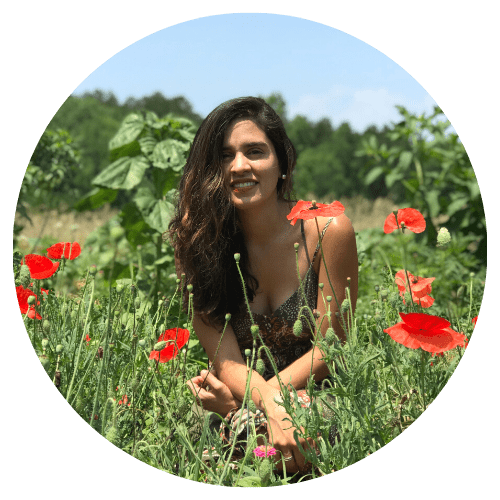
“I was excited about foraging, but at the same time I was really scared I’d mess up. My grandmother used to forage for medicinal herbs, and I wanted to develop those skills too! Christelle was an amazing support for me. She helped me get started with easy plants that have few lookalikes and to do easy DIYs that helped me gain confidence and skills. And of course, it was amazing to finally taste the delicious plants that I had harvested!” – Cristina Rojas

“Extremely pumped for the new foraging material! I’ve been dabbling in herbalism, and the menstrual cramp pain reliever is the latest in a long line of plant medicines I’ve learned how to make and enjoy. Eight months of taking it and not a single day spent in debilitating period agony! You have no idea how much it’s helped my cramps. MAGIC. Super ultra grateful for the wise women at Permacrafters for infusing so much love into this fantastic resource. I find myself referring back to their videos all the time. Their hands-on approach goes way beyond the ordinary tutorial, and the practical applications for all the DIYs are endless. I’ve found myself wanting to make everything they demonstrate — and inspired to use my new knowledge in other ways too! And yes, I’m also here for the humor.” Allison K.
Meet Your Instructor:
A proper introduction is long overdue.
Hi, I’m Christelle!
Environmentalist • Forager • Herbalist
“I’m a Swiss environmental expert with a B.A. in Environmental Studies and an M.A. in Natural Resources, with 10 years of experience in botany.
I used to suck so bad at botany as a kid. How could I not when facts that were supposed to be super cool were taught in a force-fed way? Thankfully, that changed when my college botany professors loved nerding out with me over plant trivia.
As for foraging, I hesitated for years about diving in since I was back & forth between Switzerland and the States for my studies. That is until I realized that it didn’t matter that I had no stability or roots: there’s so much overlap between edible & medicinal plants in Eurasia and North America. My skills stayed relevant!
I’ve been a teacher for over a decade now, and one of my main goals is to make my trainings accessible. You don’t have to be an expert to become a botany boss: I do the heavy lifting so that you don’t have to get lost in the details. This course gets you to foraging independence without taking out a loan or freeing up the next 4 calendar years. You can literally start foraging later this week; it’s just a matter of getting some guidance on where to start.
So, pull your socks over your pants already, and grab your shears! Let’s eat weeds together!”
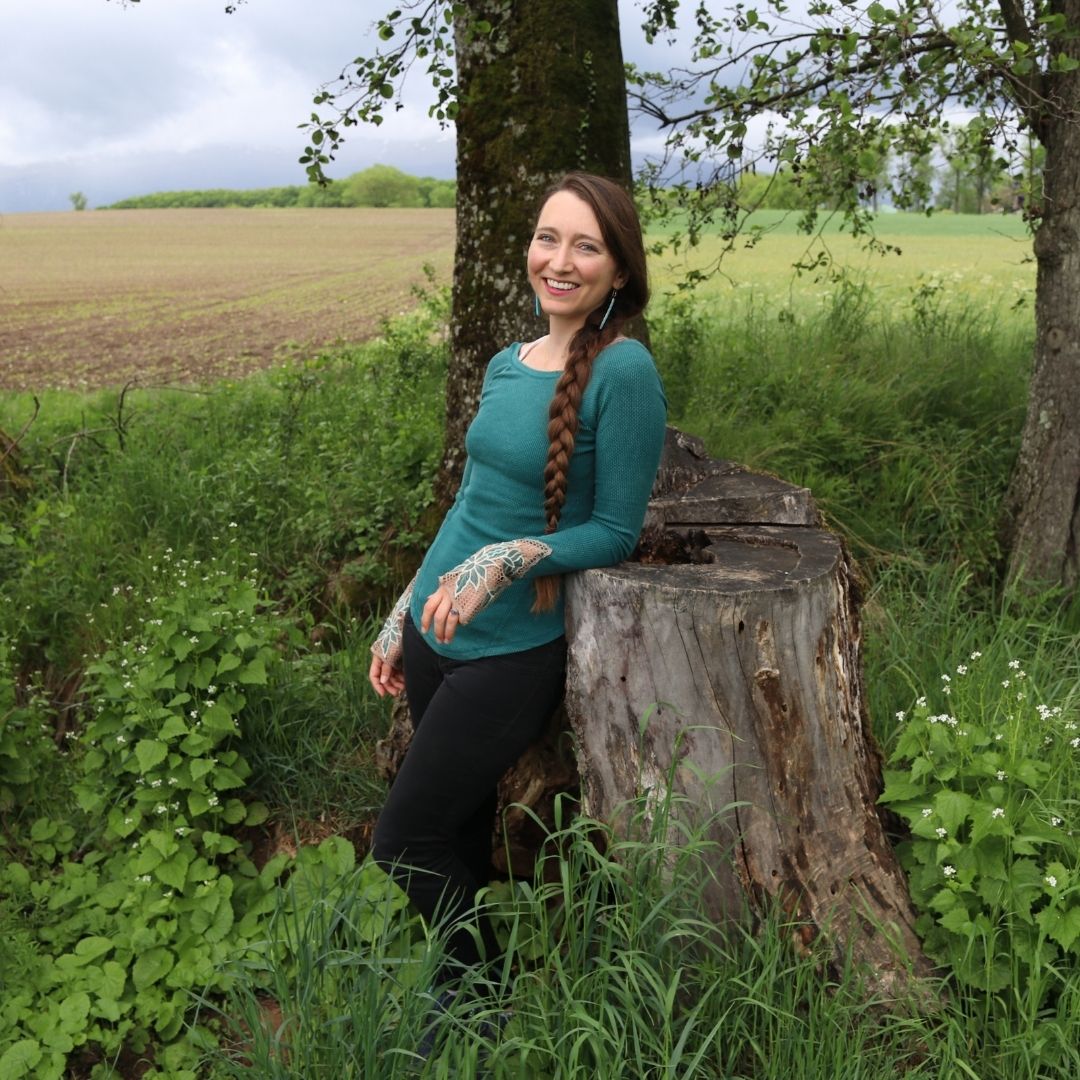
The Foraging Course is perfect for you if you want to:
Take your family on a plant walk to snack on tasty wild greens
Whip up acorn cookies for movie night and dunk ‘em in your wild spice latte
Prepare your own wild herb sedative infusion for sounder sleep
Learn survival skills, like how to forage the softest leaves during the next toilet paper shortage

“I tried the plantain hummus recipe and it turned out great! It was really easy, and I can’t wait to try other recipes. Also, thank you for using botanical terms. It provided a great opportunity to talk about plant morphology with my kids.” – Erin

“I’m pretty new to foraging and Permacrafters’ tips for IDing are really helpful. Their environmental courses are the most comprehensive and relatable ones I’ve ever come across. They’re perfect for you if you’re looking for practical and actionable steps.” -Bianca

“These gals have really mastered bringing permaculture to the average person – they’ve made it accessible and easy for newcomers like me!” Kendal S.
Foraging Edible & Medicinal Plants
Your path to foraging is paved with beneficial weeds.
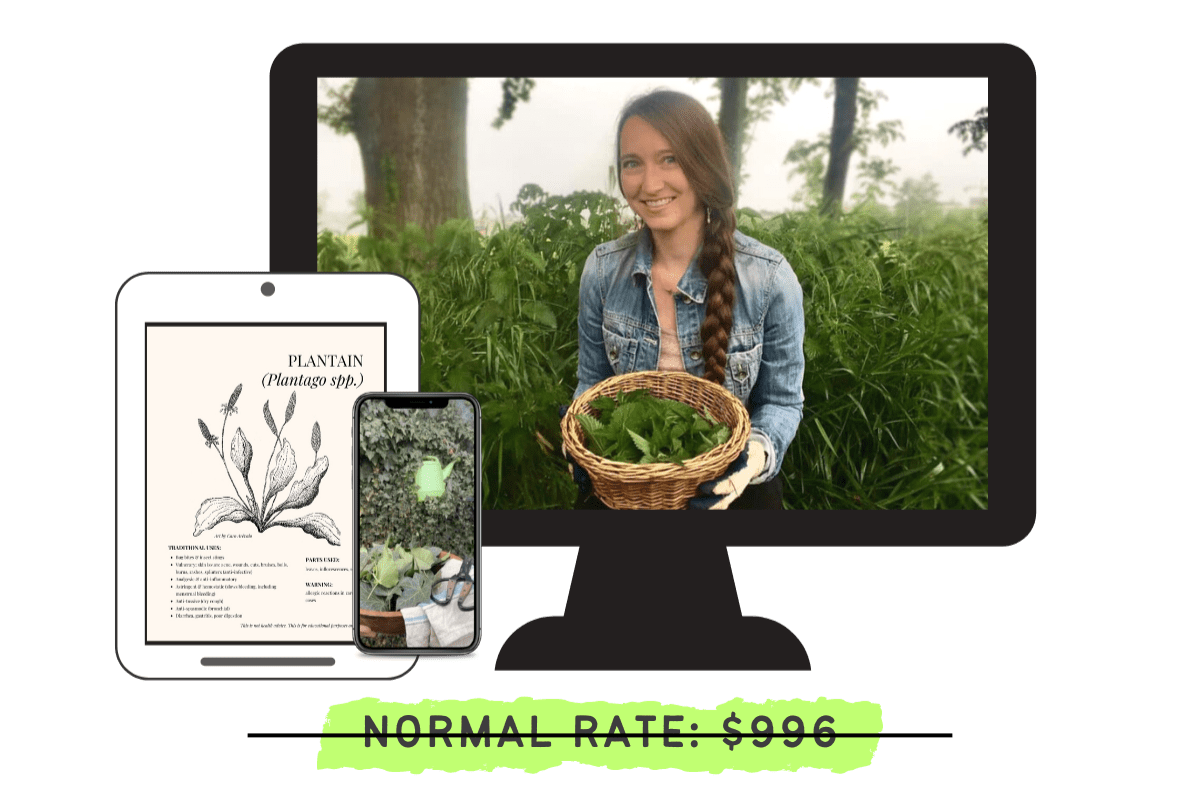
Use Code “GREENFRIDAY” at checkout for a 70% discount!
For less than a dollar a day, you don’t have to double-check your pulse after tasting a leaf. You’ll have ‘round the clock access to clarity and reassurance as you journey down your path to foraging autonomy.
Frequently Asked Questions
Isn’t it too hard to get started?
Repeat after me: “I do not need to perfectly identify every single plant I lay my eyes on”. What makes you a forager is foraging, not the number of plants you forage. You don’t need to memorize the Latin names or even the botanical terms. If you can follow a basic checklist, you have what it takes to harvest wild plants. You can start by learning about really common, really safe plants and get comfortable quickly with our guidance. You’ve got this, Queen.
What if I’m too scared to start?
If you’re afraid that you’ll poison yourself, you’re exactly the right person to get into foraging. Beginner foragers are often better foragers because they’re caring enough to pay diligent attention to details that an experienced forager might overlook. Better to be nervous than to have an unfounded sense of confidence that ends you with the trots.
There are many decisions you can make as a beginner to remove some fear factors, like choosing plants that have no dangerous lookalikes or deciding to cook the plants to guarantee there are no pathogens. We’re here to help.
Don’t I need in-person training?
Guided plant walks are a wonderful complement to the Foraging Course to solidify your knowledge. During plant walks, participants have brief encounters with numerous plants: perhaps not enough to build independence as a forager, but enough to clarify which plants they would like to focus on for the season. The video lessons in the Foraging Course have the great advantage of giving you the time to absorb key details such as specific characteristics of plants, their lookalikes, and their contraindications for consumption or for medicinal uses. Since these details won’t wilt like in an herbarium, and can’t be warped like in field sketches, this allows you to compare your own wild harvest to crisp video images as many times as necessary. This allows you to build your plant identification skills with absolute certainty to become autonomous in your foraging.
What about ethical foraging?
As environmentalists first and foremost, foraging ethically is of paramount importance to us. To ensure the protection of natural ecosystems, one of our first course modules is dedicated to learning the 6 principal foraging ethics. In addition to this, all the plants highlighted in our course are very common plants; we do not touch upon rare or protected plants.
How long do I have access to the course for?
Break out the elderflower kombucha – the answer is: “Forever!” The course is yours to keep for life. And that includes any future lessons we add! Happy dance!
Why are there 3 payment rate options?
We’re a mission-based business trying to break down the barriers to foraging. It’s completely up to YOU to decide which of the 3 program fees feels fair to you. You get to make a decision that respects your own personal financial situation. Whichever option you choose, you get the same exact content and privileges.
The reduced rate covers our business expenses; the regular rate brings in a stipend for our work; and the generosity rate really helps sustain our business.
There’s no wrong choice and you can always tip us later if you’d like to adjust your enrollment fee.
Either way, we appreciate your support!
Do you offer refunds or exchanges?
All sales are final (unless you accidentally purchased the course multiple times). We are a mission-based business that offers accessible pricing, therefore our profit margins are low. In the digital content world, where courses are immediately downloadable, there’s unfortunately a high prominence of content theft through illegitimate refund requests. Our two-person team can’t allocate the time required to keep up with this regrettable trend.
However, we want to assure you that if there are any updates you wish to see to the course or any additional modules or plant profiles, we will immediately seek to make these improvements. Do not hesitate to ask, because we create new content every week and are constantly updating our courses and adding new video lessons.
To give you further peace of mind, we offer exchanges. We are so confident that you will love the Foraging Course and the wild plants you’re about to meet, that if by day 7 you aren’t delighted, you can exchange the course for any of our other 9 eco-classes of equal value (Herbal Remedies, Sprouts & Microgreens, Secondhand Living, Zero Waste Body Care & Cosmetics, Zero Waste Menstruation, Environmental Activism, Composting, Conscious Cleaning, Intro to Zero Waste Living). These courses have received hundreds of glowing reviews. Read more in our Terms of Use.
Can I watch the course on any device?
The video course can be viewed on desktop, laptop, tablet, and smartphone. And you can download the videos too! That means you can double check your plant ID on your hike when you have no wi-fi.
Are the food recipes plant based?
Yup, no animal products. But make sure to let your flower heads sit out a while before you eat ‘em or you might chomp on an unsuspecting critter.
What are my teacher’s qualifications?
Christelle Siohan, a Swiss-Franco-American, is the lead instructor of the Foraging Course.
She holds a B.A. in Environmental Studies from Connecticut College, where she was awarded the Betty Flounders Thompson prize for excellence in botany. She received a M.A. in Natural Resources and Sustainable Development from the United Nations University for Peace in Costa Rica.
She has studied plant ecology and tropical & temperate forests in New Zealand and Australia. She graduated from the Permaculture School in Asheville where she received her Permaculture Design Certificate. She became a beekeeper with the Orange County, NC, Bee School. She has studied foraging, herbalism, and botany in North Carolina, Connecticut, and Switzerland. She’s currently working towards her wild mushroom foraging certification.
Christelle has worked in environmental organizations including Greenpeace, the United Nations Environment Program, and the World Wildlife Fund. She led a tropical reforestation program in Ecuador with OneAction. She’s been an environmental educator in Florida public schools, in Costa Rica at the Monteverde Institute, in Swiss and French schools, at the Eco-Institute in North Carolina, and now at Permacrafters. In 2022, she’s leading a wild plants camp in the Swiss mountains with the World Wild Fund for Nature.
Will the plants covered in this course be growing near me?
The plants covered in this course commonly grow in temperate regions of North America, Europe, and Western Asia. There’s a huge overlap, so your skills will stay relevant if you’re foraging within these regions. Many of the plants covered in the course grow invasively in Australia as well. Since our course covers very common plants, you won’t have to wander for long before finding them.
Can I forage if I live in the city?
Yes! There are many steps that can be taken to safely forage in an urban setting. For example, downtown foraging hotspot maps are a great way to get started. You may also reach out to organic growers: they often appreciate foragers harvesting in their lot to remove edible wild plants they might consider weeds. And remember that harvesting above 50cm or cooking your plants removes all risk of parasites & bacterial disease.
How do I receive my foraging certificate?
Once you’ve finished the course and correctly answered all the quizzes, you may earn your 100-hour certificate of completion. The quizzes can be taken multiple times if necessary, and there is no deadline by which to submit your work.
This training, like all other foraging trainings in the USA, Canada, France, and Switzerland, is not recognized by these States as there is no certifying agency for foragers in these countries. In other words, there’s currently no such thing as an officially certified forager.
What this certificate of completion does represent and what it will outline is the particular foraging subjects studied and the time and commitment required to do so.
If you can distinguish a rose from a sunflower, you have what it takes to be a forager.
You just need some straightforward guidance to stop your second-guessing.
By this time next year, you could be inadvertently stepping all over superfood “weeds” in the garden.
Or you can sign up for the Foraging Course and serve up tasty wild pancakes for brunch.
Join the Foraging Course now.
